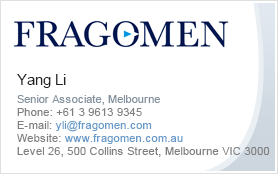
The first day of July saw many changes to the 457 visa take effect under the directions of the previous Minister for Immigration and Citizenship, Brendan O’Connor.

The O’Connor legacy
The first day of July saw many changes to the 457 visa take effect under the directions of the previous Minister for Immigration and Citizenship, Brendan O’Connor.
Mr O’Connor managed to squeeze his controversial and highly debated legislation through both houses of Parliament in the last week of June and rush through numerous related regulations at the same time, all prior to taking up his new role as Minister for Employment, Skills and Training in the most recent cabinet reshuffle.
Some of Mr O’Connor’s more significant changes are:
In addition, another controversial change to the 457 visa program has been the introduction of Labour Market Testing (LMT). This is likely to come into effect around November 2013 and would require companies to, amongst other things, advertise roles locally and show there is no suitable Australian, permanent resident or working holiday maker that can fill the role, prior to applying for a 457 visa application, unless given exemption by the Minister. Occupations in engineering and nursing will require LMT.
At this stage, it is hard to tell what the final picture of LMT will look like; however, it is likely to have significant impact to Australian businesses who require skilled labour in a timely manner. With the recent leadership change and a new Minister for this portfolio in Tony Burke, it will be of interest to business as to whether this will result in a more friendly application of this new legislation and in its policies generally in the future.
What this means for businesses
The impact of these changes will vary depending on the individual applicant, the roles nominated, the sponsor, and the wider industry and/or sector.
Nevertheless, three things are certain:
However, if you are a frequent or regular user of the 457 visa program, you should not see too much impact in the ability for staff to enter under this program, as long as your business continues to plan its global mobility program in advance and educates staff on the changes. Talking to your immigration advisors on how best to proactively manage these changes will also help to minimise risks and staffing delays in your business.
Fragomen is closely monitoring developments to 457 visas. We will be hosting information sessions around the country in the next two weeks to discuss these reforms in detail with our clients, as well as providing practical advice on how to manage these changes. If you are interested in attending one of these sessions, please contact us at [email protected]
